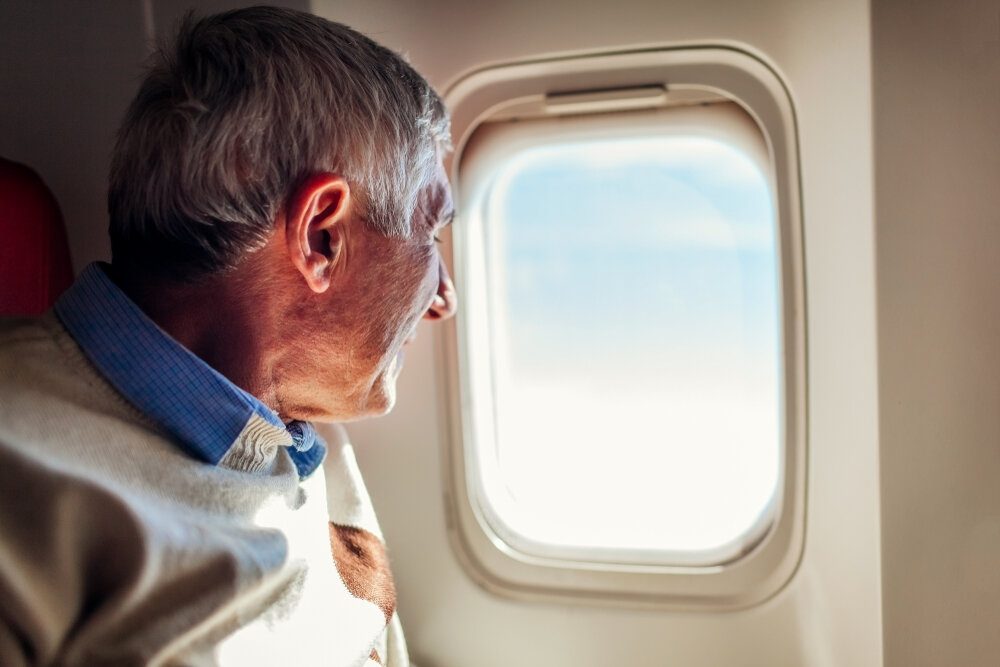If you wear a hearing aid, pack extra batteries and a spare hearing aid in the event of breakage.
Tell the flight attendant, train conductor, etc. of your hearing impairment or deafness so that you will be notified of any emergency or other announcements. Your travel agent should also give advance notice of your needs to the companies involved. At check-in time, ask for your boarding gate and time as you will not hear the announcement over the public address system. Some U.S. airports, however, have already installed assistive listening systems to help remedy this problem, and visual notice boards listing arrivals, departures, and gate numbers are required under A.D.A. for all U.S. depots and terminals.
Notify hotel personnel of your hearing impairment so that you will be informed of any emergency, e.g., fire alarms. See also the information sheet, “A.D.A. Requirements for Services and Aids for People Who Have Hearing impairments or Deafness”. Until all American hotels come into compliance with A.D.A., checking ahead when booking a hotel remains imperative.
To make it easy to request assistive devices from hotels, Self-Help for Hard of Hearing People, Inc. has prepared a “Hotel Accommodations Request Card” to be mailed once you have a confirmed reservation. On it you should also indicate date and time of arrival and departure, and confirmation number.
Contact your local organization for the hearing impaired for the address of a possible counterpart agency at your destination. The latter will likely have a TTY and interpretation service, if needed.
Put identification tags or labels on both the outside and inside of you luggage. Keep all travel documents, medications, batteries, hearing aids, glasses, and items of a personal nature with you while traveling. Also carry prescriptions of medications and glasses in case of loss.
Keep paper and pens handy for communication when necessary.
In a booklet entitled “Travel” by the Ontario Co-ordinating Council for the Hearing Impaired, one travel tip is that people with hearing aids not turn on the colume control while flying. For this informative booklet, contact the Canadian Hearing Society, 60 Bedford Road, Toronto, Ontario M5R 2K2, Canada.
Travelers who have hearing impairements and uses service animals are advised to carry medical evidence that it is such an animal, as well as veterinary health certificates as required by the countries to be visited. Be aware that some island states have strict anti-rabies laws which restrict the entrance of all animals including service animals. The countries with severe regulations and prolonged quarantines include the State of Hawaii, Australia, New Zealand, Ireland, and the United Kingdom., Always check the regulations for each country to be visited. Such information can be obtained from consulates or, in many cases, from the airlines on which one is traveling.
The leather-covered harness, leash, and collar of guide dogs are usually made of stainless steel and thus will activate the metal detector when the dog goes through the security check at airports. Should this happen, an airport employee will hold the dog while you go through the device, or you and the dog will be checked by a hand-operated detector. Also, advise the security officer if you are wearing a hearing aid before you go through the detector.

